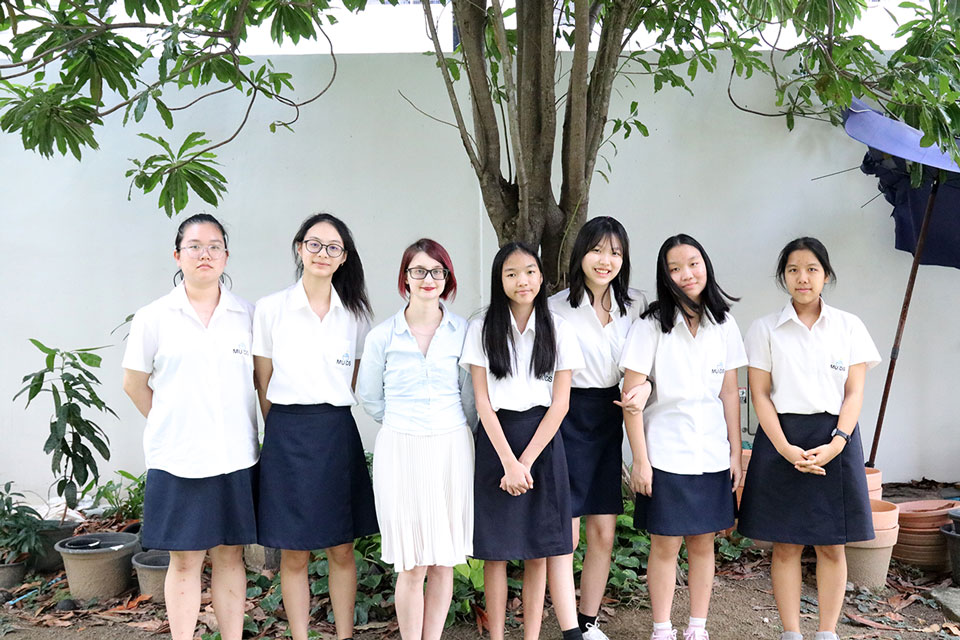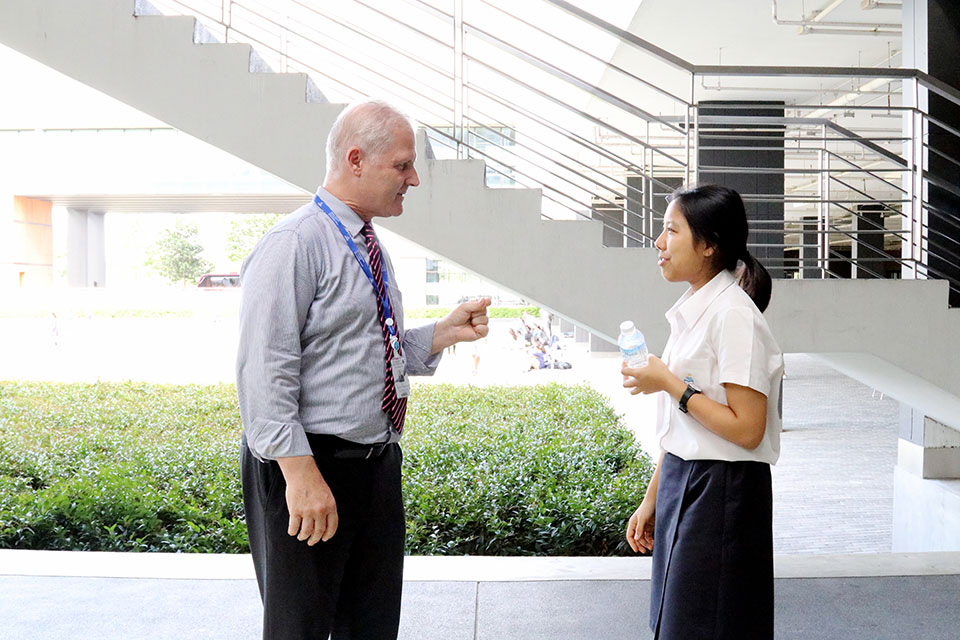The effects of climate change are growing more severe, a fact the world’s current and future leaders continue to wrestle with. “One part of my job is keeping up with the most recent U.N. reports on climate change, “Ms. Charlene Cunningham, the school’s environmental science teacher, explained. “The reports are growing more dire. If the world is going to have any hope, then the next generation needs to start getting involved.”
Eager to teacher students about environmentalism, Ms. Cunningham created a club to help students learn what they could do to help reverse the effects of climate change. This club, the Sustainable Action Club (S.A.C.), is now in its second year. The club is part of a growing movement to change how companies and institutions use natural resources and produce waste. Rather than simply create a product and pass on its waste in the form of carbon emissions, companies are increasingly graded by governments and N.G.O.s about how little carbon they produce as well as how sustainable they are.

“Sustainability, in an environmental sense, is fairly simple: give more to the earth than you take from it,” Ms. Cunningham explained. “One example of how our club practices sustainability is when we created bins for paper collection last academic year. The paper was used for two things: to be sold to the MU recycling program and to be used to make new paper. That helped reduce the amount of paper the school was using and the amount of waste it was generating. It’s just one example of how our club is helping to create a more ‘sustainable’ school.”
One former student who took sustainability to heart is Ms. Nattakorn Masaya-Anon (nickname Khing), an MUIDS graduate who was also a member of the S.A.C.
“Several field trips and projects revealed to me that people acquire resources from nature. My teachers often pointed out that, without nature, we wouldn’t’ have the comfortable lives that we have today. It became clear to me how we constantly, and tremendously, take advantage of our environment. We need to maintain it.”
Khing and her fellow S.A.C. students expanded the club’s impact, creating a recycling competition amongst the student body. They increased the number of recycling bins throughout the school as well as promoted the use of refillable water bottles. Khing, however, has gone a step further by creating a comprehensive recycling plan for MUIDS.

“Every student at MUIDS needed to complete an independent project called a Capstone. Mine was titled ‘An Effective Trash Management System for MUIDS.’ Its aim was to create a holistic view of how and how much trash MUIDS produces.”
“I conducted interviews and analyzed data the school has on its trash management system. MUIDS took some positive steps towards sustainability. It recycled its trash in Mahidol University’s ‘Garbage Recycling Bank’ program. After sorting through its trash, the school sold recyclable materials to the Bank which then outsources organic waste to local farmers. This cut down the amount of waste which ends up in landfills, meaning less pollution, less expenses, and greater sustainability. It’s great that the school did this, but my research told me we can make the system more effective by having all students and teachers participate in recycling.”
Currently the S.A.C. is partnering with Precious Plastic, a global organization that helps communities recycle plastics. It is also seeking partnerships with other international schools to help prepare a generation of leaders ready to help reverse the effects of climate change.
